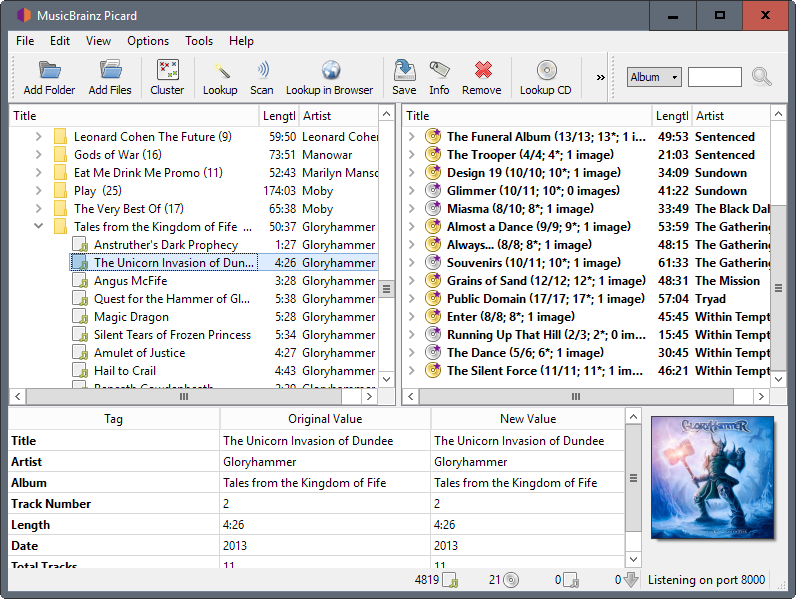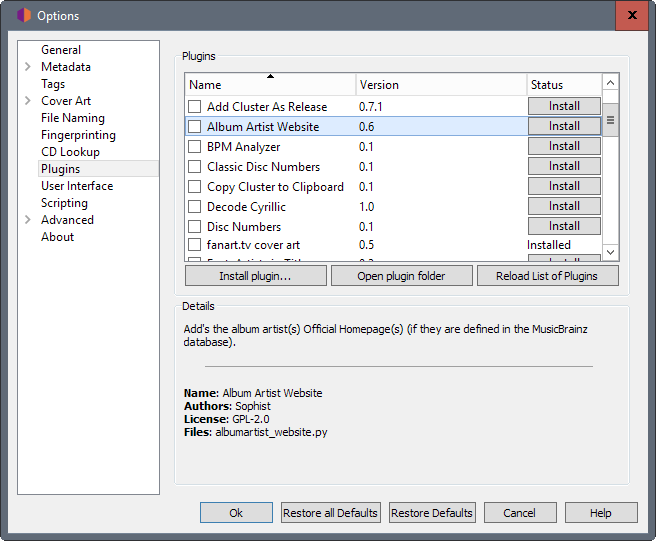Picard 1.4 music tagger is out
MusicBrainz have released Picard 1.4, a fast, comprehensive, cross-platform music tagger for Windows, Mac and Linux devices.
I reviewed Picard 1.0 back in 2012 and came to the conclusion that it was an excellent program to tag music back then thanks to the feature set it shipped with back then.
Music, like any media and many other file types, can be tagged. This adds metadata information to the files that reveal the artist or song title, the year, and other information. Most music players read the metadata and display it when the music file is played.
While you can tag music files manually, doing so would take a long time as you would have to look up information and add the data manually to each individual song.
Picard 1.4

The new Picard 1.4 was two years in the making. It ships with all the features of the previous version, and then some.
The program itself is very straightforward when it comes to using it. First thing you do is load music files; you can do so by loading folders, or by loading files directly.
Picard 1.4 scans the files for metadata, and displays them accordingly in the interface. The left side lists all files that are unmatched, the right files that are matched in albums correctly already.
While you can edit any file listed by the application, you may want to concentrate your efforts on the left side as files listed there miss metadata information.
You may edit any file manually with a right-click on it, and selecting edit from the menu. This gives you the most control over the process, but may take a very long time to complete.
Picard 1.4 supports several automation features that help you bring order to your music collection faster.
The cluster feature for instance sorts all unmatched files into albums. While it may not be able to do so for all files that are not matched, it may do so for quite a few.
Another helpful feature is scan. Picard supports something that MusicBrainz calls acoustic fingerprint. The developers have access to a large database of audio fingerprints, and may compare unmatched music files to the database to identify them automatically.
If files get identified correctly, metadata is set for these files automatically so that you don't need to do so manually.
You may use the scan for any file, and proper identification of all songs of an album will move it to the right side on the interface.
Other options include looking up information online, or looking up CD information.

Another interesting feature of Picard in general is plugin support. It has been improved in the latest version, as it is now integrated in the program.
Select Options > Plugins to browse the list of available plugins for the music software, and click on the install button to install them directly.
The several dozen plugins that are available currently add functionality to the software. This includes among other things support for Last.fm tags, generation of m3u playlists, lyrics support, or adding the artist's official homepage if available.
Picard 1.4 changes
A full list of changes has been published on the MusicBrainz website. Notable ones include:
- Support for AIFF audio files.
- Built-in search for albums, artists, tracks.
- Local files may be used as cover art.
- Plugin manager is integrated.
- Toolbar can be customized.
- Format and tag handling has been improved.
- Information added to various sections to improve usability.
Now You: do you tag your music collection?